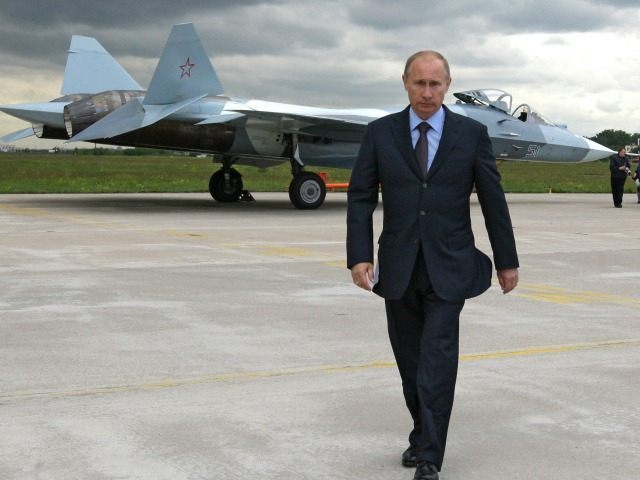Russia is reportedly planning a request, under the authority of the Open Skies Treaty, to fly advanced surveillance planes over the United States. Some American defense officials say the Russians are abusing the treaty in a manner that could jeopardize U.S. national security.
The New York Times notes that Russia and the U.S. have both conducted many surveillance flights under the Open Skies Treaty, which was signed in 1992, in a post-Cold War effort to “foster transparency about military activity and to reduce the risk of war and miscalculation, especially in Europe.” The treaty has 32 other signatories.
However, digital imaging technology has come a long way since the nineties, and there are fears Russia’s new flights could be used to spy on American military installations, communications systems, power plants, and other infrastructure targets.
Sky News notes this comes at a moment of heightened tensions over Russian military actions in Syria and Ukraine, as well as a number of incidents where Russian bombers have followed provocative flight plans over the U.S. and Europe.
“In addition to overflying military installations, Russian Open Skies flights can overfly and collect on Department of Defence and national security or national critical infrastructure. The vulnerability exposed by exploitation of this data and costs of mitigation are increasingly difficult to characterize,” said U.S. Strategic Command chief Admiral Cecil D. Haney, as quoted by Sky News.
“I cannot see why the United States would allow Russia to fly a surveillance plane with an advanced sensor over the United States to collect intelligence,” said House Armed Services Committee chair Mac Thornberry (R-TX), in a statement quoted by the New York Times.
“The Open Skies construct was designed for a different era. I’m very concerned about how it’s applied today,” said Lt. General Vincent Stewart, director of the Defense Intelligence Agency.
The Times notes that U.S. intelligence officials believe the Russians wish to use advanced aerial surveillance to fill gaps in their “frayed” intelligence network, and accuse Moscow of developing a “wandering eye” that brings them over more targets than the U.S. missile silos, bunkers, and military airfields originally covered by the Open Skies Treaty.
Meanwhile, American officials complain that Moscow has been increasing restrictions on where U.S. surveillance planes are allowed to fly over Russia.
The NYT reports Russia has “placed altitude limitations on American Open Skies flights over Chechnya, certain areas around Moscow, and along the border of Russia with the Georgian regions of South Ossetia and Abkhazia,” adding flight restrictions over Kaliningrad in 2014. Kaliningrad became the focus of a huge surge in Russian military activity in 2015, to the consternation of the adjacent nations of Lithuania and Poland.
The U.S. State Department seems much more relaxed about Russia’s new surveillance plans than the military and intelligence communities are. The New York Times says the State Departent “sees the Russian proposal as a small concession that could help preserve the Open Skies Treaty, which is important to European allies, and avoid adding strain to the United States’ troubled relationship with Russia.”
Other arguments for indulging Russia’s request include assurances that all data they collect will immediately be made available to the United States under the terms of the Open Skies Treaty; Europe agreeing to allow comparably advanced Russian surveillance flights last year; the ability of host nations to review proposed surveillance flight plans and demand alterations; and the fact that America already collects superior intelligence on Russia through our powerful spy satellite network.
It should be noted that, on the first point, while the Open Skies Treaty does require surveillance photos to be shared with the host government, some U.S. intelligence officials fear advances in digital technology will make it easier for Russia to conceal non-compliance with that rule, potentially keeping some of its data hidden from American authorities.
CBS News reports Russia is due to make the new surveillance flight request from the Open Skies Consultative Commission in Vienna on Monday. The treaty requires notification 120 days in advance, so the Russian flights could not be carried out earlier than this summer.

COMMENTS
Please let us know if you're having issues with commenting.